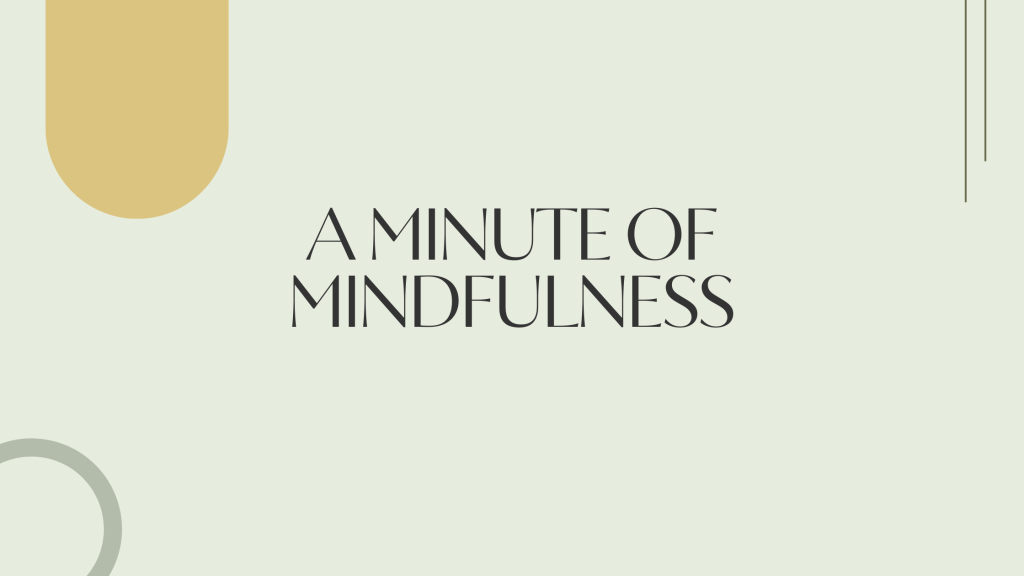We recently introduced a form of counseling called dialectical behavior therapy (DBT) in our blog. This form of therapy has many components and involves learning skills that help individuals navigate strong emotions and difficult times with greater ease. Over the next several months, we’re going to talk about each of these coping skills that are developed as part of DBT, specifically mindfulness, cognitive restructuring, distress tolerance, and emotion regulation. In this blog, we’ll discuss mindfulness and the many benefits of this skill when used as part of therapy sessions or in daily life.
What Is Mindfulness?
Mindfulness is a strategy that allows us to focus more closely on the present moment. This is an important skill for people who are struggling with anxiety, stress, depression, and other disordered emotions that lead them to live in the “what ifs.” What if I don’t get a different job? What if I wreck my car? What if my relationship fails? What if there’s a war? From the small things to the biggest, people get hung up on what might happen. When this form of thinking becomes overwhelming or strong emotions pull you out of the present, mindfulness can help to focus you on what’s happening in the here and now. Some people think of mindfulness as a huge time commitment for mediation or learning yoga and other practices. Actually, mindfulness can be practiced in just a few minutes each day. In the next section, we’ll walk through some simple one minute meditations you can do today.
One Minute Mindfulness Exercises You Can Do Right Now
Like any exercise, mindfulness exercises take consistency and practice to be effective. That’s why starting small can make a big difference. It’s easier to commit to taking a short break at least once a day than it is to commit to a lengthy daily mindfulness practice. Below, we’re including some simple one-minute mindfulness exercises you can start today:
Set a Timer – You can invest in an old-fashioned hourglass or just set a timer on your phone for one minute. At least once a day, choose something to focus on and set the timer. Focus on your breathing and whatever object you’ve chosen for one minute. As you focus, allow yourself to notice anything you see, hear, and feel, but don’t hold onto
any one thing.
Morning meditation – as you awaken, take a few deep breaths. Focus on your breathing. Then, pay attention to your body, noticing each part feels.
Take a seat – at its most basic level, meditation is simply finding a moment of peace and focus. Simply taking one minute to sit and focus your mind without distraction is one of the easiest meditative exercises. Simply sit up straight with your feet on the floor. Relax your shoulders and rest your hands on your lap. Close your eyes and focus on your thoughts and feelings as you breathe in and out.
Box breathing – this is one of the simplest and most effective calming meditations. Simply close your eyes and visualize a box. Then, breathe in for four seconds, hold for
four seconds, breathe out for four seconds, and hold for four seconds. Imagine your breaths creating the sides of the box and repeat this process for one minute.
Impromptu meditations – meditation doesn’t need to be structured. Instead, maybe you would enjoy a more spontaneous form of meditation based on curiosity about the world around you. For example, if you’re doing the dishes, maybe you become interested in the sound the faucet makes. Focus on the way water sounds and feels. Smell the dishwashing soap. Change the water temperature and note how it impacts your thoughts and feelings. Just focus on the task of doing the dishes and how it feels in the
present moment. You can do this with any task.
Visit a Therapist for More Mindfulness Exercises
Interested in learning more about mindfulness, DBT, or therapy in general? The Lotus Psychology Group team would love to hear from you. Simply give us a call at (248) 957 8973, email info@lotuspsychgroup.com, or complete our scheduling request form. We look forward to hearing from you. Don’t forget to check our blog in the coming months to hear more about DBT skills.

